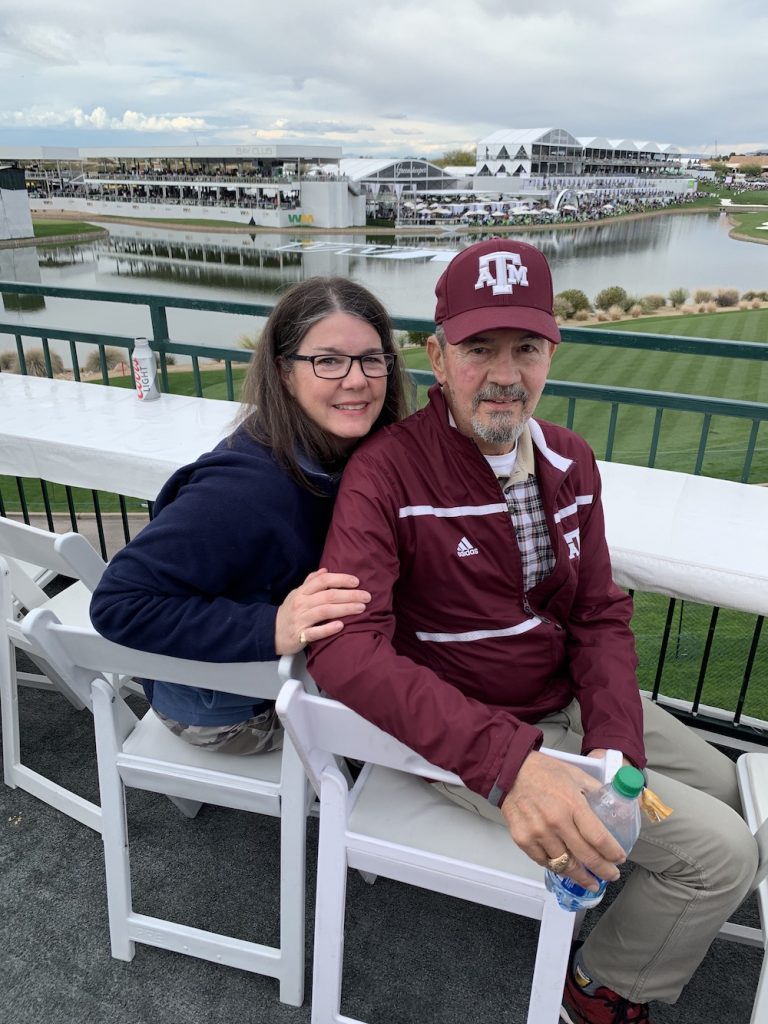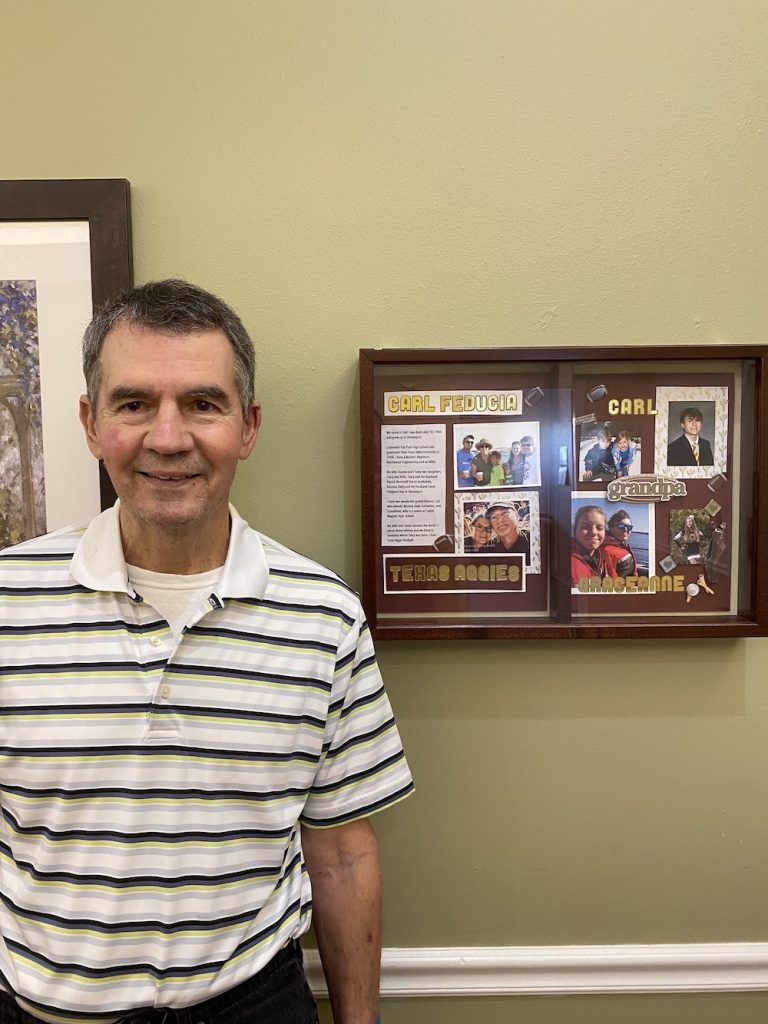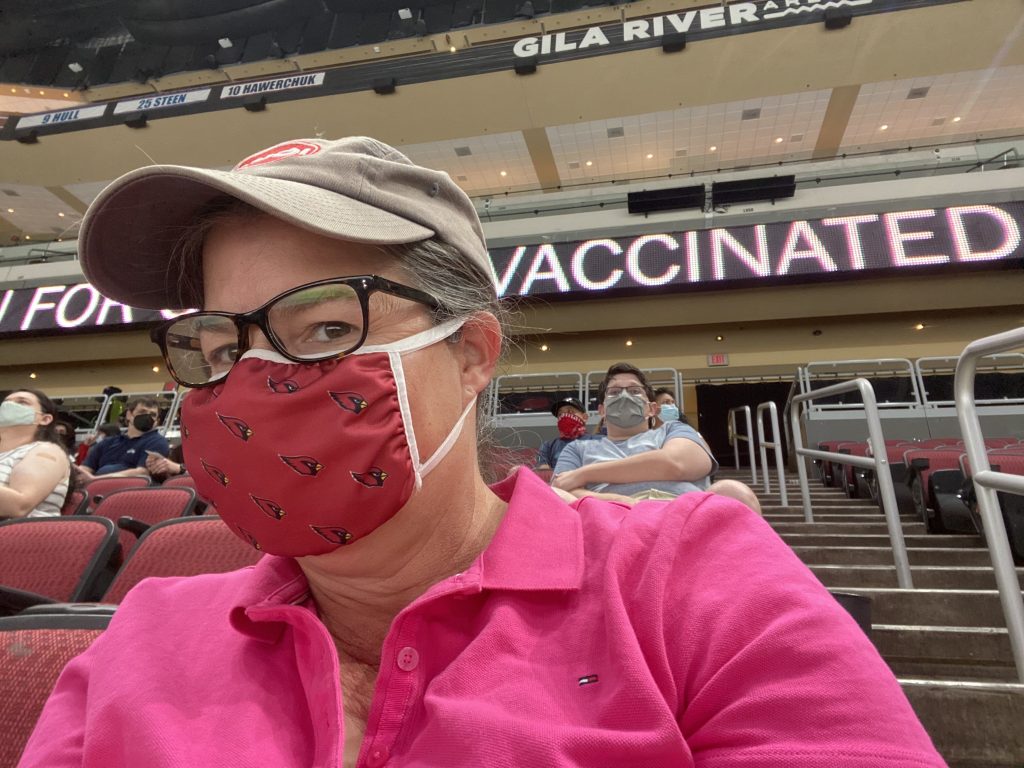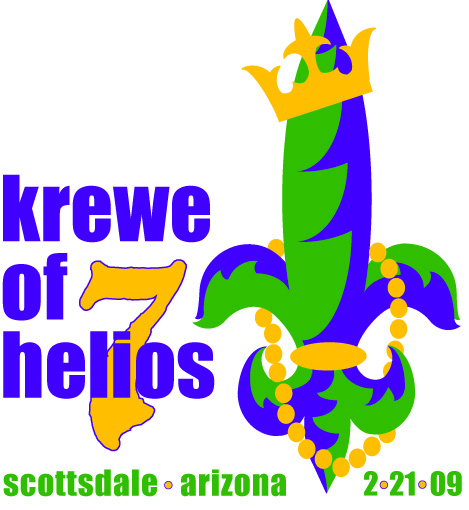
He spent the week with us and it was wonderful.
I am my father’s daughter. The eyes, the smile, the way we take pleasure in a good laugh, a good friend and a good turn of phrase. We are problem-solvers, he and I, but we are faced with a problem for which there is no solution, only grief.
In May, we moved him into Brookdale Senior Living Shreveport – Memory Care. We celebrated his first Father’s Day there in June. My mother helped him shower and dress.
“Make a touchdown,” I said, repeating his gentle coaching from more than 40 years ago when I was a child and he helped me get dressed for church or school. Daddy complied, thrusting both arms in the air, and Mom pulled the long-sleeved shirt over his head.
Today is his 75th birthday, and the man that finished among the Top 5 in his age group at the 2012 New Orleans Half-Marathon is slipping away from us.
“I’m healthy here, but not there,” he says, pointing to his heart and then to his head. He says he “smashed his brain and it doesn’t work.” It’s how my father, the mechanical engineer, explains how his current world.
Vascular dementia is not Alzheimer’s dementia. While both involve physical damage to the brain, the cause of Alzheimer’s is still debated — amyloid plaques and neurofibrillary tangles and something about tau proteins — but vascular dementia is clearly understood: progressive damage caused by brain bleeds that seep into the different regions controlling thought, balance, memory, learning. Sometimes the cause is stroke. Sometimes, aneurysm. Tiny blood vessels in Daddy’s brain began leaking — Why? No one knows — but his iron-rich blood left microscopic metallic deposits in its wake, starting in the area where language forms. The alien invaders first stole his words, as he stumbled around “the white thing for my nose” to find “handkerchief.” As the damage progressed, it drew a shroud across the route back to the house and then the way to the bathroom and now, sometimes, my name.
Four years ago, we received a diagnostic description of the strange patterns on the MRI and the cause of his lost words: Superficial siderosis. A rare, progressive and fatal condition. Two years ago, his Barrow neurologist, one of the world’s leading authorities on dementia, diagnosed a mild cognitive impairment — not Alzheimer’s, to his great relief. She gently warned us that it would progress, but that we could try to slow the inevitable end if he ate right, exercised, attended speech therapy and stayed socially active. A year-and-a-half ago, he had, in the words of his Mayo-trained neurosurgeon, “the million-dollar workup.” She cried when she delivered the verdict: That there was no hope at the end of her scalpel.
Then COVID. Then seizures. Now memory care.
Two months ago, he had to leave home. Despite her best efforts, my mother could not continue to care for him there: He kept waking up in the middle of the night, turning on all the lights and wandering about the house. She could not leave him alone.
Now she tucks him in at night in his twin bed in the little apartment with a view of the courtyard and the birds that gather there. His new home is only 1.6 miles from his old one. He feels safe there, and we are grateful for that.
He is different now — a little unsteady on his feet, more than a little uncertain in his thought — but my Daddy is still there. My nephew introduced “Pops” to his girlfriend and said, “I finally got a girl to talk to me!”
Daddy laughed out loud at that one.
His sense of humor is still intact, and sometimes he cards on his fellow residents: “They’re so old!” he says. Even though his face is creased with worry that he doesn’t understand his current state, that the past is vanishing from his mind and that the future is too scary to imagine, he still laughs, and smiles that warm and friendly smile. My smile.
We don’t ask him if he remembers something from long ago: It frustrates and upsets him and reminds him of what he has lost. Instead, we talk about the past with him as a full participant — which he was — and we meet him where he is. Sometimes confused. Sometimes afraid. Always gentle, always kind, always happy to have a laugh.
Always my Daddy.



